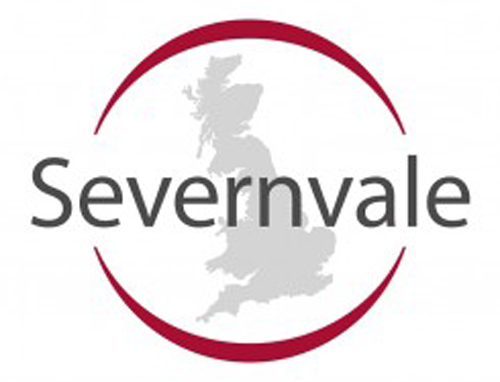5 Tips for Networking in English
Networking is one of those “buzzwords” used in everyday business. It means building professional connections at international conferences or business events by introducing yourself and promoting your company or services in the hope that this will create contacts beneficial to your future business.
The importance of networking might be summed up by the well-known phrase “It’s not what you know, it’s who you know” and many successful business people will tell you that meeting contacts face-to-face and building relationships on that initial encounter is essential for starting up or growing a business. The vast majority of small business owners, for example, say that most of their business comes from the contacts they’ve made through an event or an introduction.
Many admit to feeling uncomfortable when networking. This is understandable when facing the daunting task of attending an event full of strangers, while at the same time knowing how important it is to establish some useful contacts. This feeling is intensified further if you aren’t a native English speaker and don’t feel very confident if English is the main language used (I’ve included some suggestions in the tips below to help with this) or if you are unfamiliar with the etiquettes of networking.
1.Have a plan before you get there
Going into a room full of strangers at a conference or event can be a difficult experience, so to help relieve anxieties it’s good to have a plan before you get there. Consider a short, simple way to describe your business, and think about who will be there – do some research in advance by making a list of the types of contacts, connections, support and suppliers that you need, and check if anyone will be there who can help you.
If you feel as a non-native speaker that your English is limited, think about some simple questions you can ask, then think about how you would answer those same questions yourself. Prepare these answers ahead of time so that you will be able to respond when people put the same question back to you.
The most important thing when you arrive is to get talking. Making contact with those from within your industry and beyond is essential for future business development and growth. You never know who you might meet!

2. Networking is not a sales pitch, it’s about building a quick rapport
It should be brief, informal, interesting and leave people wanting to know more. Be chatty and friendly with a bit of small talk to start with-always good for breaking the ice. Introduce yourself and say who you work for. As a non-native speaker you can use some basic language like: “Hi, my name’s….. and I work for,” and “I’m in charge of sales…” Then you can ask them about their business and what they do. Avoid asking questions which will only get a yes/no answer. Open-ended questions beginning with what….who…where…when…why….how, are much better at enabling the listener to give a fuller response, for example “Who do you work for/ Why did you come to the conference/What are you working on at the moment?” Then you can explain a bit about what you do and who uses your products. If it’s appropriate, say that you may be able to help them. Then see if they would consider using your business services. Some typical phrases might include the following:
“Can you tell me about your company?”
“Can I briefly tell you about what our company does?”
“I think we might be able to help you.”
“Here’s my business card should you want to call.”
3. Have an exit strategy
Another concern while networking is how long you should spend on talking to a potential contact. At what point and in what way should you end the conversation and move on to another? Although it’s good to keep an eye on the clock to make the most of your time, rather than using common exclamations such as “is that the time? I really must be going…” for example, you can be both honest and polite by telling them how good it’s been to meet them and adding “now I’d better go and meet a few more people before the end of the evening.”
4. Think about connecting others
Think about being a connector for others, in other words the third party who introduces one attendee to another, potentially creating a successful business relationship between them. They will remember you as the one who put them in touch with a useful contact and will only be too willing to do the same for you if the opportunity arises at a later date.
5. Don’t forget to follow up
Finally, consolidate the contact! If you come across a potential customer, do remember to follow them up with a quick phone call or email within a few days of meeting up, otherwise you risk losing all your hard work. It could make all the difference to your business in the long run. E-mailing will usually be a preferred means of maintaining communication for non-native speakers as they have more time to plan and think about what to say.
These days networking has been made a lot easier and faster through the various means of electronic communication. As a result, relationships can develop, decisions can be made and business deals and contracts can be established much more speedily. At the root of all this, however, lie the benefits from those initial brief face-to-face meetings at conferences or events. I hope the above tips help to equip you with the necessary tools for exploiting business opportunities more fully when doing your own networking.
Vocab Buster
Buzzword (n)- the latest word or phrase commonly used, fashionable at a particular time in a particular context
Daunting(adj)- making you feel worried about your ability to achieve something
Intensified (v)- more serious or extreme
Relieve(v)- cause to become less severe or serious
A sales pitch(n phr)- an attempt to get someone to buy your product
Consolidate (v)- make something stronger
Exploit (v)- take advantage of /make the most of
For further advice to learners of English on networking, a range of useful resources can be found online.
Resources
http://www.bbc.co.uk/learningenglish/english/features/english-at-work/48-language-for-networking
https://www.ted.com/talks/worklife_with_adam_grant_networking_for_people_who_hate_networking
https://www.theguardian.com/small-business-network/2014/nov/13/how-network-effectively-tips

